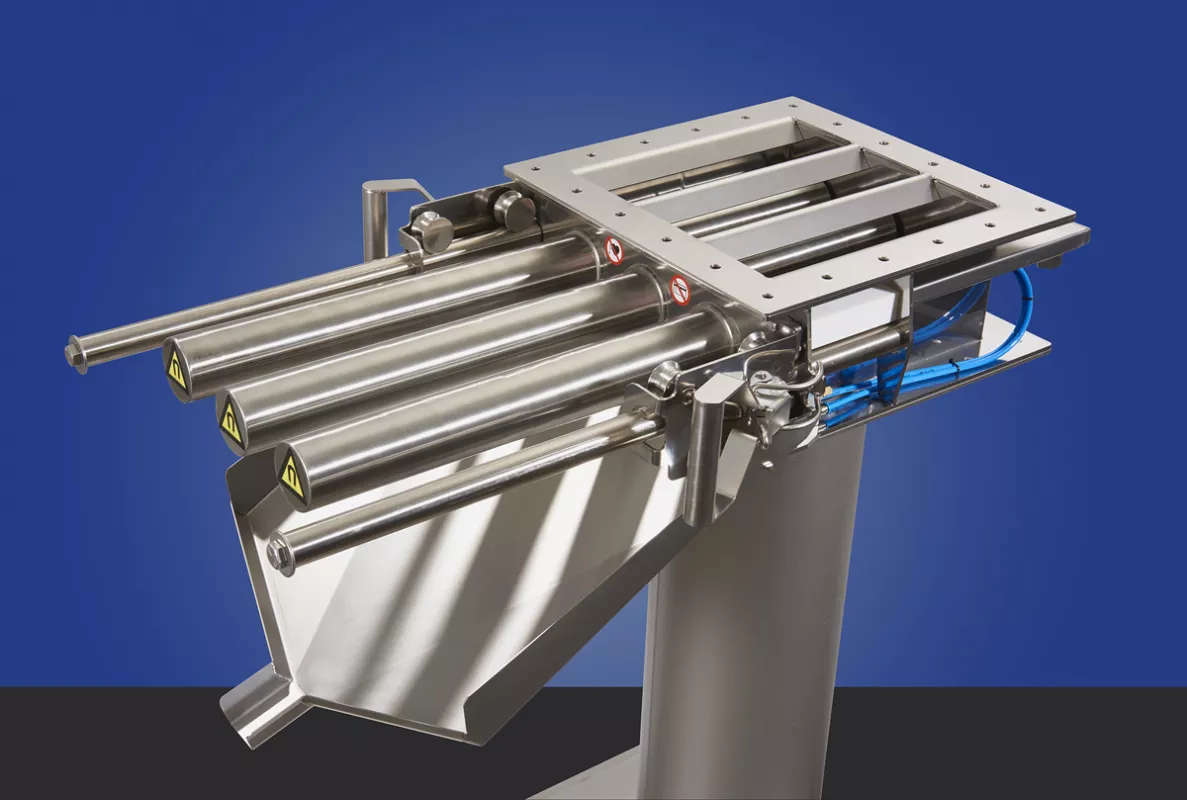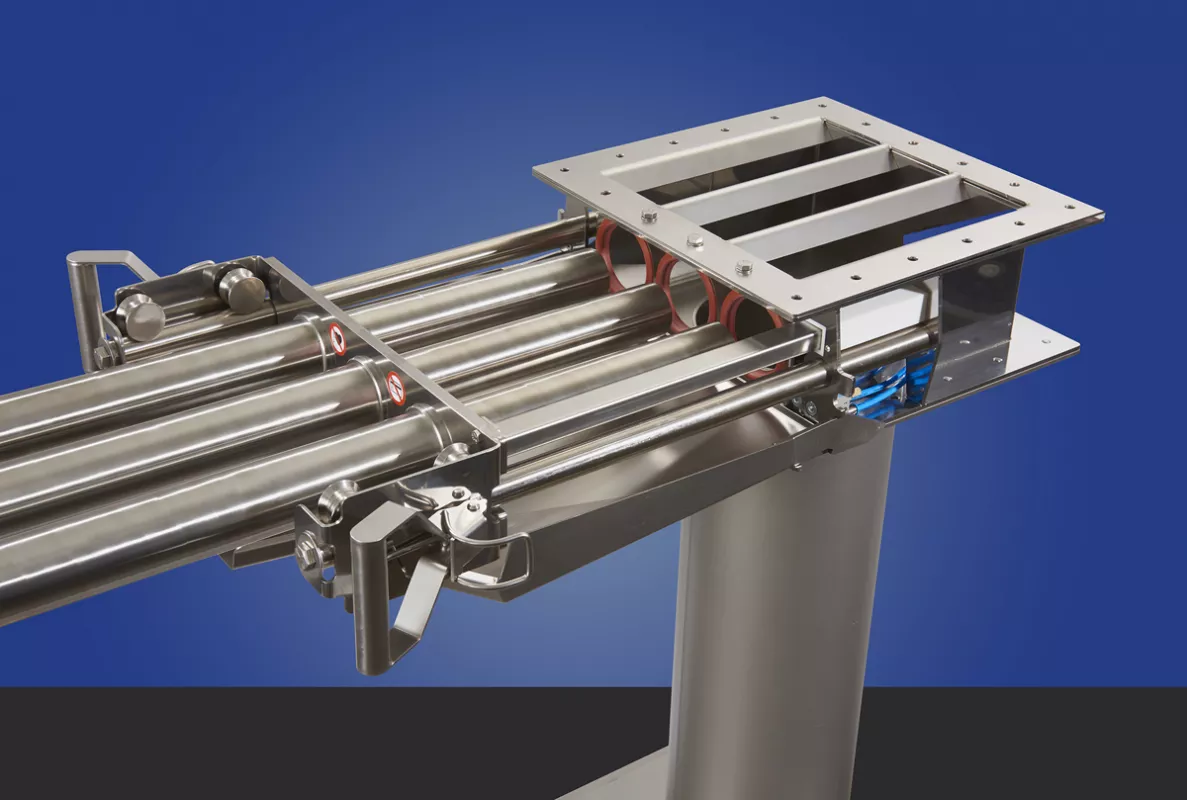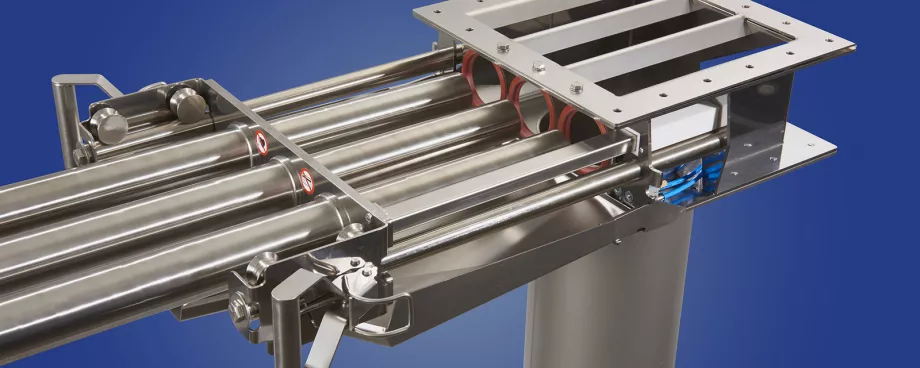In contrast to previous designs, in which such magnets were fitted with two layers of thin (Ø25 mm) bars, the new design contains a single row of Ø50 mm thick bars. New measurement techniques, including simulations of magnetic fields and tests in the company's own test centre, have shown that this results in a higher separation yield. This is because the thicker bars remain in contact with the magnetic particles longer. An additional benefit is the reduced height of the magnet as a whole, which means it requires less installation height. Moreover, a single row of bars results in improved product flow; which is particularly beneficial when it comes to poorly flowing powders.

Goudsmit Eas Clean Flow - closed
|

Goudsmit Eas Clean Flow - open
|
Cleaning
The pneumatic magnetic bars simplify the cleaning process. The magnetic bars are slid out along a guide and, once outside the housing, the magnets are exposed by blowing them out of the bars. A plate then retains the captured metal particles, after which they fall into a collection tray. With its enormous magnetic holding power of 13,000 Gauss at the rods, the Easy Clean flow magnet is also perfectly suited for the separation of small (>2 mm) stainless steel particles. The tests and measurements mentioned above also showed that magnetic holding power alone is not enough to separate stainless steel particles. It is also of critical importance that these particles come into contact with the bars as they flow past. To accomplish this, the company can fit deflectors in the magnet, providing good control over the direction of product flows containing weak magnetic (stainless steel) particles. This ensures that the product always contacts the bars.
■





